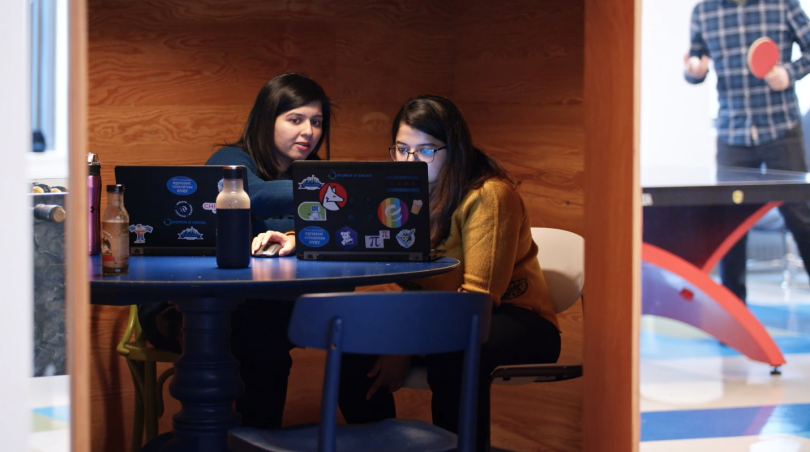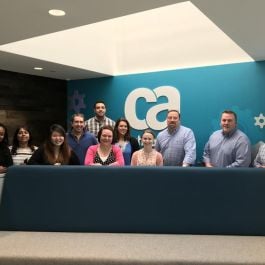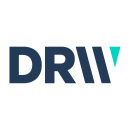
Making decisions. Contributing impactful ideas. Determining responsibilities. Operating with limited supervision.
Autonomy in the workplace can take on many forms, but one thing is certain: It’s a powerful motivator for employees and often one of the reasons behind an employee’s long tenure at a company.
Just ask Kevin Harriss, a system engineer team lead at Enova. Harriss said his career growth and five years at the fintech company is a direct result of the autonomy he’s been given to challenge the status quo and suggest improvements where needed.
“Without all the autonomy I have been allowed, my technical and people skills would not have evolved at the same rate,” he said.
Harriss isn’t the only local techie who feels a sense of autonomy in their role. Built In Chicago heard from four more professionals across the city to understand what freedom looks like in their positions and how it’s impacted their work experiences.
Senior Software Engineer Javad Afshar said that he was able to gain autonomy in his role by proving that he’s dependable and showing initiative. Doing so earned him the respect and trust of the company’s CTO and lead engineers.
What they do: Financial services company tastytrade empowers individual investors by providing educational media and powerful, intuitive trading software.
What autonomy do you have in your role and how does that shape the work you do?
My experience was fairly unique in that I joined tastytrade as a bootcamp grad toward the early startup stages of the company. Because the team was so small at that point, everyone was trusted to a certain degree to pick up work and get it done. Eight months into my first-ever engineering job, I found myself spearheading a redesign of the entire tastytrade site, carrying through a complicated migration process and managing all the other bootcamp grads. I had an open line to the more senior engineers anytime I had questions, but I also had to do my own homework. I talked to the people on the business side, figured out what was involved in this large project and worked out how to implement it.
Now that we’ve grown a fair amount and have a greater number of experienced engineers, the larger tickets tend to fall to these folks, who lead the project and divvy up the work. But the model of giving new members on the team — who quickly prove their dependability and show initiative — additional responsibility to just get things done independently is very much still in place.
If you’re proactive, take initiative and look for opportunities to take on more responsibility, you can really succeed here.”
How does your direct manager support or encourage your professional autonomy?
At some point on our team, you just reach a level of trust with our CTO and lead engineers. You transition from being assigned tickets to having the freedom to just pick them up at your leisure. You can always ask a more senior member of the team if you have questions, but our engineers are given a fairly long leash. You generally bear the responsibility for asking for help when you need it. We definitely do a lot of upfront mentorship with juniors and new hires and continue to mentor and provide feedback during code reviews. We have pretty strict code-quality standards, so that’s where the real feedback loop comes in and that’s where our engineers really see growth in themselves and their work.
How has this autonomy affected your experience at your company?
What I really love about working on this team is that if you’re proactive, take initiative and look for opportunities to take on more responsibility, you can really succeed here. If that’s the kind of person you are, you’re going to have a really fast trajectory.
In one instance early on, I picked up a fairly basic security ticket for the customer accounts team. Because we don’t have middle management and we work in the same space as the business side, I ended up building a relationship with our chief compliance officer and the other leaders on the accounts team. They liked the work I did for them and I ended up doing more and more for accounts, like working with them to create tickets based on their specific needs, building internal tools for them and essentially becoming the liaison to that section of the business. You’re not restricted by anyone and there’s no filter or red tape, so you can really learn so much more about the business side and position yourself as an indispensable member of the team. In terms of personal growth, work and career, this framework basically sets the sky as the limit.
FPGA Engineer Siva Gangavarapu said that in his role, he’s able to constructively debate design decisions with his manager without it compromising his autonomy to work on the project as he sees fit. This allows him to think critically and develop professionally.
What they do: Optiver is a proprietary trading firm that uses technology to provide the most up-to-date and competitive prices for financial products around the world. Put simply, their mission is to improve the markets.
What autonomy do you have in your role and how does that shape the work you do?
As an engineer at Optiver, autonomy is baked into my role. Once I have ownership of a project or feature, the entirety of the development process, including design decisions, testing, ensuring transparency and communication with other teams and monitoring performance in production, is in my hands. I’m free to pursue my own ideas, whether they are driven by something I noticed in production or an internal improvement to our systems. I seldom find myself tied down to a rigid subset of the codebase: my projects encompass a wide range of our technology stack and I’ve often been able to go beyond the scope of my listed job description as an FPGA engineer.
Autonomy has allowed me to sharpen my problem-solving skills in a variety of domains.”
How does your direct manager support or encourage your professional autonomy?
While my manager mostly remains hands-off and allows me to work on projects as I see fit, he is always willing to offer feedback. We frequently debate certain design decisions and I know I can count on his input whenever I need it without compromising the freedom in my role. He encourages open communication around my projects’ progress and hurdles, allowing me to work autonomously while ensuring I’m in tune with the rest of the team and our goals.
How has this autonomy affected your experience at your company?
This autonomy only enhances my ability to perform my job and boost the technology footprint in our trading systems. In our fast-paced and highly-collaborative environment, I’ve been able to substantially grow my knowledge and sharpen my problem-solving skills in a variety of domains, from our trading strategies to the low-level intricacies of our network setup. I’m more motivated and productive in such a dynamic environment where I’m encouraged to push myself and independently pursue more responsibility. I come into work knowing that a fresh set of interesting problems is waiting to be tackled and the only thing stopping me is the number of hours in the day.
Solution Engineer Maverick Jean-Baptiste said that in his role, he’s not only given the autonomy to take ownership of certain projects, but he’s also encouraged to explore other areas of the company in his downtime.
What they do: Duck Creek Technologies offers core systems solutions to the insurance industry through its enterprise SaaS solution, Duck Creek On Demand.
What autonomy do you have in your role and how does that shape the work you do?
My role as a solutions engineer is to support our pre-sales team, which often allows for opportunities to be creative when problem-solving or advising as the technical SME. My approach starts by setting goals and objectives then organizing by priorities. Additionally, I like to spend downtime in our solutions center, which is an extensive resource for information.
Autonomy has allowed me to shape my career goals and line them up with my current role to create a space where I’m able to succeed.”
How does your direct manager support or encourage your professional autonomy?
My manager’s managerial style is to encourage autonomy but offer support when needed. The approach he takes is to assign us projects and inspire us to take the lead. This gives me a sense of ownership and the opportunity to exercise discretion on how to meet the deadline.
How has this autonomy affected your experience at your company?
Autonomy at Duck Creek has really helped improve my skill set by allowing me to explore more areas of the company. I’ve been able to shape my career goals and line them up with my current role. This allows me to create a space for myself where I’m able to succeed.
Since her very first day, Jordan has felt autonomy in her role as a software developer. She said that she’s always encouraged to question the status quo and be vocal about any new ideas she brainstorms.
What they do: DRW is a diversified trading firm that uses advanced technology to identify and capture trading and investment opportunities globally.
What autonomy do you have in your role and how does that shape the work you do?
My job strikes the ideal balance between guidance and independence: I receive general direction by way of my team’s goals and timelines, but my daily tasks are not stringently mandated from the top-down. Instead, I’m able to determine which issues are the most pertinent and where my efforts would be most useful.
More importantly, I am never told how to solve an issue. I’m trusted to carry out the problem-solving process on my own through investigating various potential solutions, evaluating pros and cons, executing accordingly, evaluating results, communicating updates and iterating at any step if needed.
The most salient example of autonomy in my role is my involvement with revamping the infrastructure of various tools that allow traders and researchers in the firm to access certain data. This has been a very large undertaking for my team and it’s an open-ended problem: make everything as efficient and easy to use as possible. While working through broad guidelines, I’ve had the autonomy to select the most appropriate tools, frameworks and design patterns to solve the problem, and I have been able to provide feedback on what would be best to focus on next.
Trust is ingrained to our culture, as we all are trusted to do what we need in order to achieve our goals.”
How does your direct manager support or encourage your professional autonomy?
My manager is incredibly skilled in fostering my autonomy. Since my very first day, he’s encouraged me to question the status quo and be vocal about new ideas. If I have an idea that benefits the team and fits within our current mission, I’m encouraged to tackle it. He also directly asks for my and others’ opinions on certain issues and involves us in the decision-making process where appropriate.
I also handle my daily work independently (but of course, I’m always welcome to ask questions!). We catch up on my progress through daily syncs and biweekly one-on-one meetings, but I am far from being micromanaged. I can plan my workload to meet our long-term timelines without being scrutinized about the details.
It all boils down to the following: As a great manager should, he’s created an atmosphere founded on trust and inclusion.
How has this autonomy affected your experience at your company?
The level of autonomy that I have in my role is absolutely one of my favorite aspects of my job (I’ve talked ad nauseam about this with friends and family). There are three main reasons for this.
First, having autonomy means that I have greater ownership over what I produce. There’s no better satisfaction than working on a task from ideation all the way through production. This is the engineer’s dream. Because of this, I feel more motivated to begin the day and more rewarded at the end of the day. This makes me a better and happier developer.
Second, the freedom to decide how I should solve a problem means that I will inevitably make more mistakes. And, as we all know, mistakes are the best way to learn. I face novel issues and thus discover novel solutions — I learn an astonishing amount every day.
Last, and this is perhaps less obvious, but autonomy has made me feel closer to my team. Trust is ingrained to our culture, as we all are trusted to do what we need in order to achieve our goals. I am never afraid to ask someone a question and I am always more than willing to lend a helping hand. My team and I support each other in our collective efforts while also working as one.
System Engineer Team Lead Kevin Harriss’ career growth and tenure at Enova is a direct result of the autonomy he’s been given since starting with the company. Harriss said that his managers trusted him from day one to tackle complex problems in the product while also providing him opportunities to suggest improvements.
What they do: Enova provides individuals and businesses with financial products and services, claiming to have provided more than 6 million customers around the world with access to more than $20 billion in loans and financing.
What autonomy do you have in your role and how does that shape the work you do?
As the lead of our platform team, I have the autonomy to work with my team members in setting our team’s goals and the processes we use to achieve those goals. Over the last year, I have leveraged this autonomy to move our team from a “private ticket queue” to working in the open via GitHub issues and public roadmaps. Allowing visibility into our work queue and future plans helps to grow a collaborative culture that increases the autonomy our team has earned.
When it comes to the direction of our team, we collaborate across our organization, but we’re trusted to choose the architecture and implementation that our team deems best. I encourage autonomy among my teammates: we work as a team to prioritize our work and projects, but the specific implementation is up to those individuals. As a team, we share an understanding that “we do what we say we are going to do,” yet we allow ourselves the ability to solve problems that might arise. By focusing on infrastructure-as-code and delivering self-service platforms, we remove our team from the process of launching new services, which enables us to focus on features and platform improvements instead of tickets and external requests.
My progression into a bigger role would not have happened without the freedom to address some of the people and process obstacles that interested me.”
How does your direct manager support or encourage your professional autonomy?
My direct manager and department director provide me with professional autonomy by trusting that I have Enova’s best interests in mind when approaching larger problems. This was evident when we worked to design the vision for Enova’s container platform. Instead of telling me to run Kubernetes or dictating a specific implementation, we discussed the high-level problem: “What should Enova’s container future look like?” They also provide me with the safety and freedom to attempt new ideas and test to find the best answer. This provides an environment that promotes learning and psychological safety.
How has this autonomy affected your experience at your company?
The autonomy I have received has been a strong factor in my career growth and length of tenure at Enova. I was trusted in my role from day one. This provided me the opportunity to tackle complex problems and suggest improvements without struggling to earn the trust of my manager and team. They provided me with the necessary systems so I could safely learn and fail.
I started out as an individual contributor at Enova and, in those early years, I had the autonomy to go after problems that were just out of my current skill set, allowing me to learn and challenge myself. My progression into team lead and people management would not have happened without the freedom to address some of the people and process obstacles that interested me. Without all the autonomy I have been allowed, my technical and people skills would not have evolved at the same rate. This freedom allows me to challenge myself with a diverse and difficult set of problems, which also helps prevent me from experiencing burnout.













